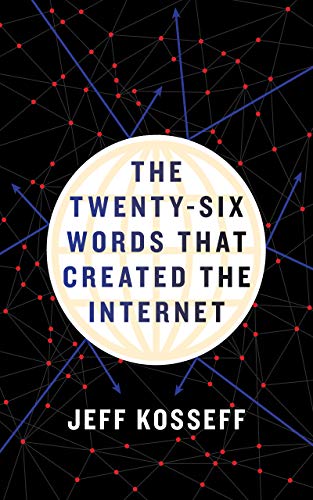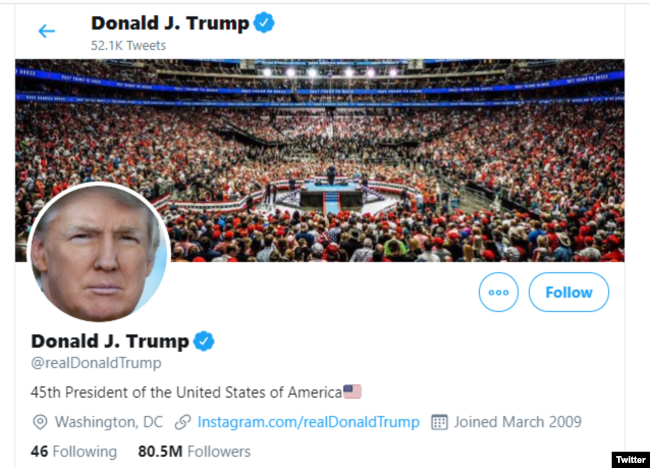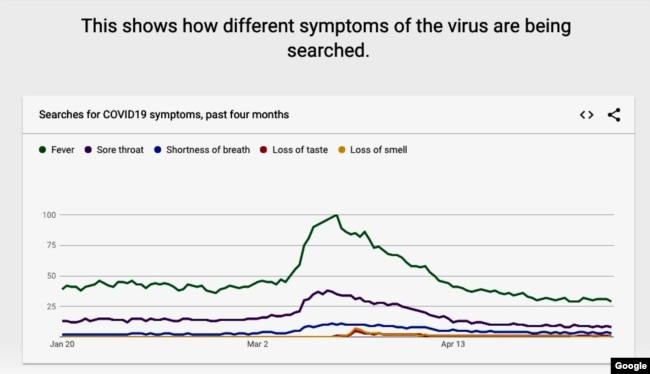Section 230 を考える
先日のトランプ大統領のツイートに、ツイート社の”事実確認警告”を出したことに対しトランプ氏が執行命令で第230条に反発したということが話題となりましたね。
さて、この230とは?
今日のVOAとその他230の記事から、考えてみたいと思います。
う~~ん。そうなのね!!! 日本にはないけれど。。。
- インターネット企業の法的保護ルールが変更される可能性がある(和訳)
- セクション230が制限されたり、なくなったりしたらどうなるのだろうか?
- セクション230の26の言葉とは
- その他、第230条の記事
- モデレートって?
- 原文
- Words in This Story
インターネット企業の法的保護ルールが変更される可能性がある(和訳)
専門家によると、フェイスブック、ツイッター、グーグルなどの企業が今日のような規模に成長するのに役立ったのは、1996年に制定された法律の26文字だけだそうです。
この法律は1996年通信品位法の第230条として知られています。これは新たな注目を浴びており、変更される可能性があるのです。
この法律は、インターネット企業が、他人が自分のプラットフォーム上に置いたものをめぐって訴訟に直面することから保護するものです。米国の法律では、企業は一般的に、ユーザーが自社のウェブサイトに投稿したものに対して責任を負いません。
しかし先週、ドナルド・トランプ大統領は執行命令で第230条に反発しました。この命令では、企業がユーザーの投稿内容について”編集上の決定”を行った場合、政府は保護を再検討するとしています。
トランプ大統領の執行命令は先週の木曜日に出され、数日後、ツイッターがトランプ氏の投稿のうち2つに事実確認の警告と呼ばれるものを追加しました。
トランプ氏と他の政治家たちは、ツイッターやフェイスブック、他のソーシャルメディア企業が230条からの保護を乱用していると言っています。彼らはこの法律を変更するか、完全に取り消すべきだと主張しているのです。
一部の専門家は、法律が取り消された場合、今日私たちが知っているようなインターネットが完全に変わるかもしれないと示唆しています。
ここでは、この法律に関するよくある質問と回答を紹介しよう。
セクション230とは何ですか?
例がその質問に答えるのに役立つかもしれません。ニュースサイトが誤ってあなたを詐欺師と呼んだ場合、あなたは出版社に対して法的措置を取ることができます。しかし、誰かがあなたが詐欺師であることをFacebookに投稿した場合、あなたはFacebookに対して訴訟を起こすことはできませせん - それを投稿した人にだけです。
この法律は、何百万もの投稿を持つことができる企業を、他の誰かが投稿した何かによって不利益を受けたと感じている人が提起した訴訟に直面することから保護しています。投稿が真実か虚偽かは関係ありません。
第230条では、ソーシャルメディアサービスがわいせつな投稿や、サービスが許容できると考える内容に違反した投稿を削除することも認めています。さらに、同法はサービスが "誠意”で行動していることを要求しています。
法律用語では、”誠意”とは、正直かつ公正に、個人や企業の権利を破壊することを望まずに行動することを意味します。
セクション230はどこから来たのでしょうか?
この措置のルーツは1950年代にあり、書店のオーナーが”わいせつ”を含む本を販売した責任を問われていました。わいせつは修正第一条の言論の自由の規則では保護されていません。
この問題に関する1つのケースが最高裁に達しました。裁判所は、他人の書き込みに対して誰かの責任を問うことは違法であるとの判決を下しました。
1990年代は、インターネットが大きな成長を遂げた年でした。当時運営していたのは、コンピュサーブ社とプロディジー社の2つの会社でした。彼らは人々が情報を共有できるオンラインフォーラムを提供していました。コンピュサーブ社はそのフォーラムをモデレートしないことを選択しましたプロディジー社はモデレートしました。
コンピュサーブはそのポリシーをめぐって裁判にかけられましたが、その訴訟は却下されました。しかし、プロディジーはトラブルに巻き込まれました。判事は、プロディジー社が”編集上の規制を行使した”と判決を下したのだ、とジェフ・コッセフ氏は述べています。彼は "インターネットを作った26の言葉 "と呼ばれる230条についての本を書いています。☟別途紹介
政治家たちは裁判官の決定を好みませんでした。彼らは、それがインターネット企業を全く穏健にしないように導くのではないかと心配していました。そして、第230条が誕生したのです。
セクション230が制限されたり、なくなったりしたらどうなるのだろうか?
コッセフ氏は、アソシエイテッド・プレス(AP通信)に対し、「どのソーシャルメディア企業も、セクション230なしでは、現在の形では存在しないと思う 」と話しました。企業はユーザーの投稿のための プラットフォームであることを ビジネスモデルにしているのだと。
何が起こるかについては、2つの可能性があります。プラットフォームが提供するものの一部を削除する可能性があります。例えば、ウェブサイトのクレイグスリスト社は、2018年に性犯罪法が可決された後、ウェブサイトからセクションを削除しました。この法律では、セックスワークをサポートする素材については、セクション230の例外が設けられたのでした。クレイグスリスト社はすぐに”パーソナルズ”のセクションを完全に削除したのです。同社は例外対象とはなりたくなかったのです。
ケイト・ルアン氏は、アメリカ市民自由連盟の上級弁護士です。彼女は、ソーシャルメディアのプラットフォームが法律で保護されていなければ、ドナルド・トランプ氏の投稿を投稿するという危険は冒さなかっただろう。
もう一つの可能性は、フェイスブックやツイッターなどのプラットフォームが、モデレーションを完全に停止する可能性があるということだ。その代わりに、良いことでも悪いことでも、誰でも何でも投稿させてしまう可能性があるのだ。
過激派の画像やメッセージを投稿させることで知られる8chanのようなサービスが、ソーシャルメディアを簡単に支配する可能性がある、とエリック・ゴールドマン氏は言います。彼はカリフォルニア州サンタクララ大学の法学部教授です。同氏は、第230条を元に戻すことはインターネットにとって危険だと述べています。
しかしゴールドマン氏は、今回の政権の命令を、インターネットに対するそのような脅威とは見ていません。トランプ支持者にアピールするためのものだと見ています。「大統領は議会を覆すことはできない 」と彼は話してくれました。
セクション230の26の言葉とは
一体26の言葉って何???
"No provider or user of an interactive computer service shall be treated as the publisher or speaker of any information provided by another information content provider."
"対話型コンピュータサービスの提供者や利用者は、他の情報コンテンツ提供者が提供する情報の発行者や発言者として扱われてはならない。"
ピリオド入れて、ぴったり26の言葉 ”26words" です。
詳しくは、このご本でどうぞ。英語版だけのようでしたがご参考までに。
 出典:Amazon
出典:Amazon
その他、第230条の記事
下記は2018年の記事です。
質問:通信品位法第230条とは何ですか?
ANSWER. 米国を拠点とする世界的な非営利デジタル権利団体、Electronic Frontier Foundation によると、第 230 条は、インターネット上で「表現の自由と革新を保護するための最も価値のあるツールの 1 つ」であるとのことです。
1996年に制定された通信品位法の当初の目的は、インターネット上での言論の自由を制限することだったとEFFは述べています。しかし最高裁は、EFFを含むインターネット・コミュニティの反対を押し切って、言論の自由を制限する条項を取り消しました。
第230条には、「インタラクティブ・コンピュータ・サービスのプロバイダーやユーザーは、他の情報コンテンツ・プロバイダーによって提供された情報の出版者や発言者として扱われてはならない」と書かれています。
Q: インタラクティブ・コンピュータ・サービスとは何ですか?
A: インタラクティブ・コンピュータ・サービスとは、CDAでは「複数のユーザーによるコンピュータ・サーバへのコンピュータ・アクセスを提供または可能にする情報サービス、システム、またはアクセス・ソフトウェア・プロバイダ(特にインターネットへのアクセスを提供するサービスやシステムを含む)」と部分的に説明されています。
これは、AT&T、Comcast、VerizonなどのインターネットサービスプロバイダがCDA規制の対象となることを意味します。
一般的にサードパーティのコンテンツを公開するオンラインサービスを含む、さまざまな対話型コンピュータサービスプロバイダもCDA規制に準拠する必要があります。例としては、Twitter、YouTube、Vimeoなどが挙げられます。
Q: CDAはオンライン仲介者の保護を提供していますか?ある場合、どのような保護がありますか?
A: セクション230は、民事責任からオンライン仲介者を保護しています。それによると、「インタラクティブ・コンピュータ・サービスのプロバイダやユーザーは、プロバイダやユーザーがわいせつ、淫乱、痴漢、不潔、過度に暴力的、嫌がらせ、その他の好ましくないと考える素材へのアクセスや利用可能性を制限するために善意で自発的に行った行為については、その素材が憲法上保護されているかどうかに関わらず、責任を問われることはありません。
要約すると、第230条はオンライン仲介者を、他の人のコンテンツや行動に対して法的責任を負わせる可能性のある複数の法律から保護しています。通常の ISP は、サードパーティのコンテンツを公開するオンラインサービスと同様に保護されています。
この措置により、ユーザーのコンテンツの一部は保護されますが、特定の知的財産権法や刑法を遵守しなければならないため、完全に保護されるわけではありません。
Q: 他の国では、CDAのセクション230が米国で行っているように、インタラクティブ・コンピュータ・サービスに対して法的保護を提供しているのでしょうか?
A: EFFによると、他の多くの国には同様の法律はありません。カナダ、ヨーロッパ諸国、日本は高いレベルのインターネットアクセスを提供していますが、主要なオンラインサービスのほとんどは米国を拠点としています。
"これは、CDA 230によって、論争の的になるような言論や政治的な言論のためのプラットフォームを提供したいと考えているウェブサイトや、表現の自由に有利な法的環境を米国が安全な避難所になっていることが理由の一つです」とEFFは述べています。
Cornell Law School のLegal Information Institute にある230解説はこちら☟
https://www.law.cornell.edu/uscode/text/47/230
モデレートって?
事例をあげて「コンテンツモデレーション」を取り上げていたので紹介します。
日本語にするとわかりにくいな~と思ったのですが、
こんなかんじでしょうか。
コメントの編集および削除や会話のロックによって、ディスカッションにコミュニティの行動規範を適用すること。
原文
Legal Protection Rule for Internet Companies Could Be Changed
Experts say just 26 words from a 1996 law have helped companies like Facebook, Twitter and Google grow to the size they are today.
The law is known as Section 230 of the 1996 Communications Decency Act. It is facing new attention and might be changed.
It protects internet companies from facing legal cases over things others place on their platforms. Under U.S. law, the companies are generally not responsible for things their users post on their websites.
But last week, President Donald Trump pushed back against Section 230 with an executive order. The order says the government will reconsider protections if companies make “editorial decisions” about what users post.
Trump’s executive order came last Thursday, days after Twitter added what it called a fact-check warning to two of Trump's posts.
Trump and other politicians say that Twitter, Facebook and other social media companies have abused protections from Section 230. They have argued that the law should be changed or cancelled altogether.
Some experts suggest that the internet as we know it today might change completely if the law were cancelled.
Here are some common questions and answers about the law.
What is Section 230?
An example might help answer that question. If a news website falsely calls you a cheat, you can bring legal action against the publisher. But if someone posts on Facebook that you are a cheat, you cannot bring a legal case against Facebook — only the person who posted it.
The law protects companies, which can have many millions of posts, from facing legal cases brought by anyone who feels wronged by something someone else has posted. It does not matter if the post is true or false.
Section 230 also permits social media services to remove posts that are obscene or violate what the service considers acceptable. In addition, the law requires the service to be acting in “good faith.”
In legal terms, “good faith” means acting with honesty and fairness and without the desire to destroy the rights of a person or business.
Where did Section 230 come from?
The measure has its roots in the 1950s, when bookstore owners were being held responsible for selling books containing “obscenity.” Obscenity is not protected by freedom of speech rules in the First Amendment.
One case on the issue reached the Supreme Court. The Court ruled that it was unlawful to hold someone responsible for someone else’s writings.
The 1990s were years when the internet experienced huge growth. Two companies operating at that time were CompuServe and Prodigy. They offered online forums where people could share information. CompuServe chose not to moderate its forum, while Prodigy did.
CompuServe was taken to court over its policy. That case was dismissed. Prodigy, however, got in trouble. A judge ruled that Prodigy “exercised editorial control” said Jeff Kosseff. He wrote a book about Section 230 called “The Twenty-Six Words That Created the Internet.”
Politicians did not like the judge’s decision. They worried it would lead internet companies not to moderate at all. And Section 230 was born.
What if Section 230 is limited or goes away?
Kosseff told the Associated Press, “I don’t think any of the social media companies would exist in their current forms without Section 230.” He said the companies have based their business models on being platforms for user posts.
There are two possibilities of what could happen. Platforms might remove some of their offerings. The website Craigslist, for example, took down a section from its website after the 2018 passage of a sex-trafficking law. The law created an exception to Section 230 for material that supports sex work. Craigslist quickly removed its “personals” section completely. The company did not want to take chances.
Kate Ruane is a senior lawyer for the American Civil Liberties Union. She said that if social media platforms were not protected under the law, they would not risk posting Donald Trump’s posts.
Another possibility is that Facebook, Twitter and other platforms could stop moderation altogether. Instead, they could let anyone post anything, good or bad.
Services like 8chan, which is known for letting users post extremist images and messages, could then easily take control of social media, said Eric Goldman. He is a law professor at Santa Clara University in California. He said undoing Section 230 would be dangerous to the internet.
But Goldman does not see the administration’s order as that kind of threat to the internet. He said it is meant to appeal to Trump supporters. “The president can’t override Congress,” he said.
________________________________________________________________
Words in This Story
post –v. to add a message to an online message board
platform –n. a tool, often involving technology that permits a person or group to tell a large number of people about an idea, product, etc.
editorial –adj. relating to editors or editing
obscene –adj. relating to sex in an indecent or offensive way
forum –n. an area of a website where people go to discuss things
moderate –adj. to guide a discussion or direct a meeting involving a group of people

